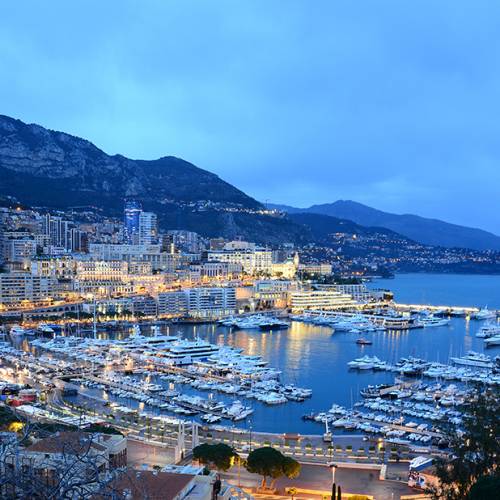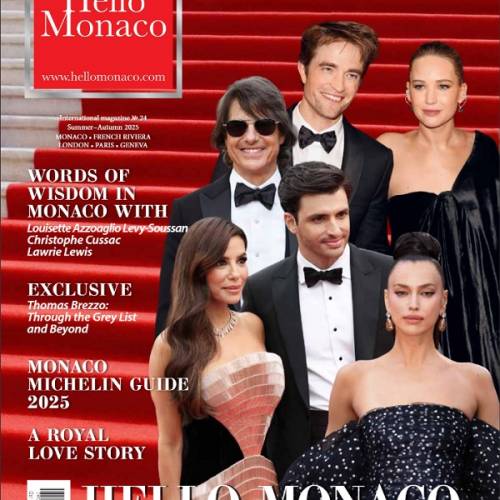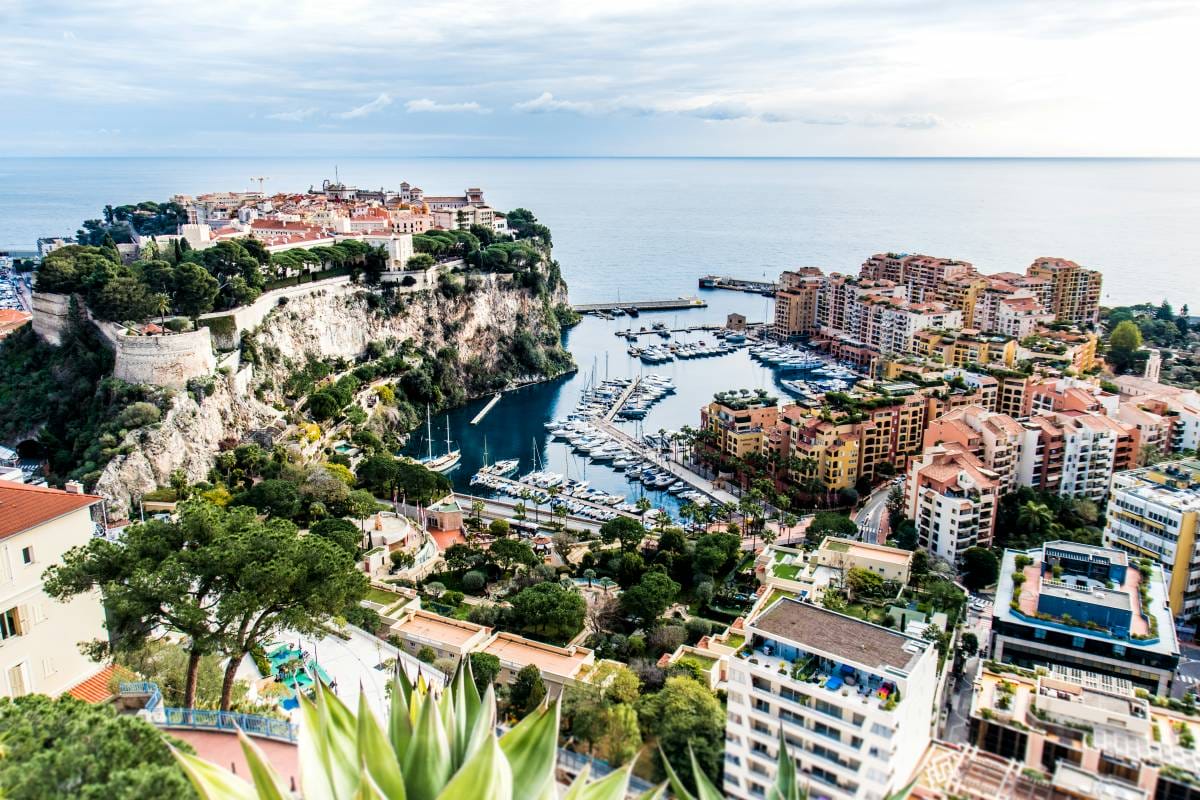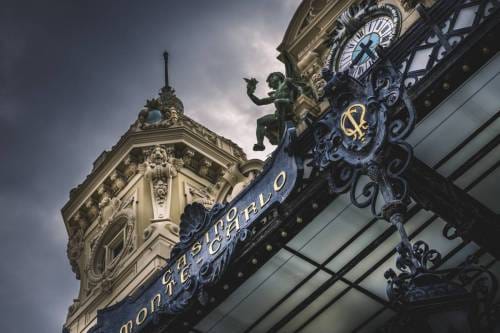Monaco is famous around the globe for attracting the rich and famous to its luxury-packed shores. Not only is it home to one of the most iconic Formula 1 Grand Prix circuits, but visitors are also attracted to its luxury hotels, designer shopping, and incredible nightlife. The harbours and marinas attract superyachts worth hundreds of millions, and the 40,000 population swells by almost 10 times every year thanks to tourists.
Visitors can enjoy fine dining, exclusive bars, and luxury shopping with brands like Rolex, Louis Vuitton, Dior, Gucci, and Chanel, who are all represented here. As well as high-end fashion, there are unique boutiques and more to explore. However, Monaco could be set for a shift that will help to modernise it.
Traditionalists need not worry about the iconic vistas and incredible architecture, because this revolution is set to take place online. As the world moves to embrace cryptocurrencies, the willingness of luxury brands to embrace fintech could help Monaco promote the use of cryptocurrencies and become a European hub for industry and commerce.
Bitcoin Adoption in 2025
Cryptocurrencies have started 2025 well, with political backing in the US sparking a massive rise in value. News that the crypto industry would receive the backing and infrastructure required for it to grow saw Bitcoin reach record values, with a clamour from consumers for how to buy Bitcoin securely. This has resulted in businesses, brands, and services exploring options that would see them accept crypto, and in particular Bitcoin, payments. Many luxury brands are keen to explore these options with Web3 developments presenting them with a lot of opportunities.
Luxury Brands Embrace Web3 Technology
Web3 is the internet’s next evolution and is built on the likes of DeFi (decentralised finance), blockchain, and smart contracts. These technologies help to give consumers greater control over their own data and facilitate peer-to-peer transactions.
Decentralisation aims to provide a bigger power share among communities and individuals, with users having control over their identities and digital assets. The use of blockchain improves security and transparency by recording transactions on a public ledger that is almost impossible to manipulate.
Decentralised apps help to provide services without intermediaries, and smart contracts are designed to facilitate automation, streamlining processes and reducing costs.
Some of the key purposes of Web3 are to improve openness, collaboration, and interoperability and provide alternatives to centralised networks like Google, Amazon, and Meta. Users are rewarded rather than exploited, helping growth through mutually beneficial developments. Luxury brands are keen to explore potential new revenue streams via Web3 and find a way to stay connected with their audience.
Future-Proofing the Brand
Older generations who haven’t grown up with modern tech are much more set in their ways, but there is a new generation emerging that only knows growing up with the internet. Gen Z consumers (born from ’97 to 2012) make up around half of the luxury market, and staying in touch with younger demographics is essential for all brands’ long-term futures.
Digital generations are more likely to shop online and embrace the new experiences Web3 is capable of producing. With so many luxury brands available in Monaco, embracing these new opportunities like crypto acceptance is something that will appeal to new audiences, without forcing brands to change their traditional values.
Improved Verification and Traceability
The transparency afforded by blockchain technology helps to improve consumer confidence in brands and has also been used to improve product authentication. Cartier, the Prada Group, and LMVH (Louis Vuitton Moet Hennessy) collaborated to create the Aura Blockchain Consortium, a non-profit software solution company that aims to provide luxury brands and their customers with a better and more transparent way of buying, owning, and reselling luxury goods.
Solutions available include digital product passports that make it easier for brands to navigate EU regulations. They also specialise in digital collectables like NFTs, bringing a digital benefit to physical purchases. Luxury brands are making use of Web3 capabilities to safeguard intellectual property and offer customers better value.
Facilitates Collaboration
Web3 has the power to streamline collaborative projects, opening up the potential for future digital and real-world benefits for consumers. Brands can also improve communication with customers and build communities where they can learn more about the people who support them and create unique digital experiences for them to enjoy.
NFTs and other digital assets can be stored on the blockchain, with collaborations between luxury brands helping to create limited edition experiences and products that can be offered to exclusive online communities. NFTs have been used by Prada to promote new collections and shows in the past, with other exclusive collaborations bringing the worlds of art, entertainment, and fashion together.
Provides a Platform for Augmented Creativity
Luxury brands’ synergistic relationship with the creative industry is something that has helped with design and marketing, and Web3 is in a unique position to push this into the digital sphere. The virtual realm is one that can be explored by luxury brands to provide customers with an extended shopping experience, with ‘phygital’ goods blurring the lines between digital and retail shopping experiences.
Improve the Experience of International Visitors
Monaco welcomes visitors from all around the world, and accepting cryptocurrencies could be a way for luxury brand operators to provide their customers with savings.
Anyone who has used a card to make a payment on holiday will understand that exchange rates and additional fees can make this a costly exercise. When you consider the potential for higher transactions associated with luxury goods, poor exchange rates and percentages taken from banks can end up being worth quite a lot.
Crypto offers a way for consumers to pay directly to a retailer without having to exchange money for the local fiat currency. Fast and secure transactions also reduce the risk of financial fraud.
Monaco’s Crypto Tax Rules
The favourable tax regulations in Monaco attract a lot of wealthy individuals and businesses, and with tax-free crypto trading and no inheritance tax, Monaco could become a hub for crypto use and fintech developments.









